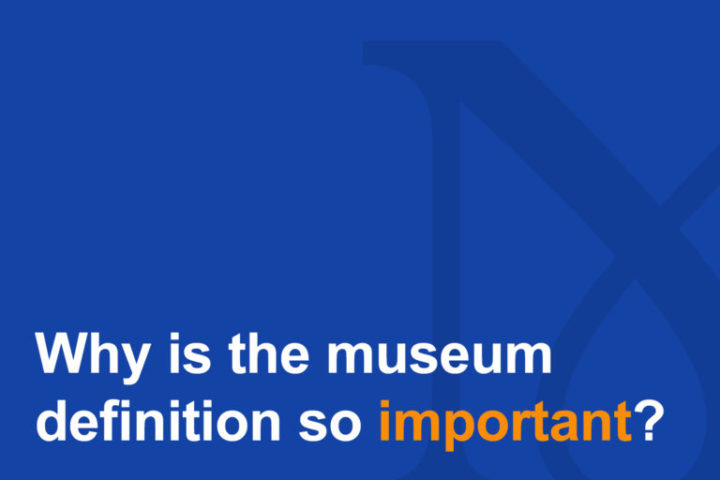“A museum is a non-profit, permanent institution in the service of society and its development, open to the public, which acquires, conserves, researches communicates and exhibits the tangible and intangible heritage of humanity and its environment for the purposes of education, study and enjoyment”.
This is the latest version of the ICOM museum definition, dating from 2007. Even if small changes happen every five years or so, it has gone without a deep revision for half a century. “It doesn’t speak the language of the XXI century”, explained Jette Sandahl, chair of the newest ICOM standing committee, Museum Definition, Prospects and Potentials (MDPP).
During the last couple of years, a number of informal discussions addressed the issue of the definition. If looked from the needs and perspectives of the XXI century, its roots, deep ingrained in previous periods and in outdated assumptions and values, become apparent. “The museum definition thus seems to need to be historicised, contextualised, de-naturalised and de-colonialised” insisted Sandhal in an ICOM meeting last August. This is why ICOM created in 2017 the MDPP –to explore the diversity of museums, bring experts together, address social trends and advise ICOM on a possible revision.
In this interview, Sandahl explains why having a museum definition that reflects the current paradigm is important and what is the committee doing to achieve it.
[arve url=”https://www.youtube.com/watch?v=e6eROC9Lk0A&feature=youtu.be” /]
–
You can find a transcript of the interview here:
Transcript in English | Transcription en français | Transcripción en español
–
Jette Sandahl has been the founding director for two pioneering new museums, the Women’s Museum of Denmark and the Museum of World Cultures in Sweden. She has served as Director of Exhibitions and Public Programs at the National Museum of Denmark, and as Director Experience at National Museum of New Zealand Te Papa Tongarewa. Most recently, she was director of the Museum of Copenhagen, Denmark. She has been part of the formation of new paradigms for museums as platforms for empowerment, cultural participation and social justice, and publishes widely within the museological field.
